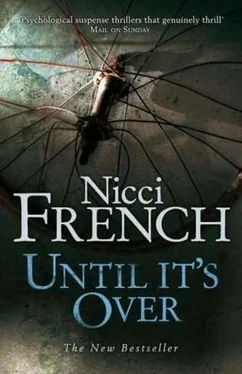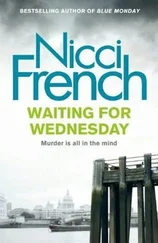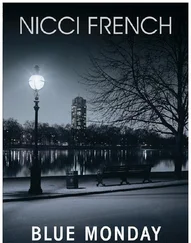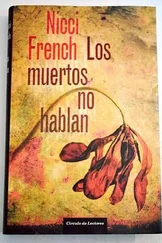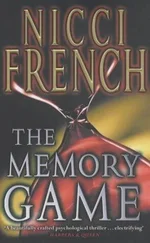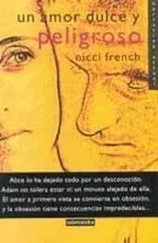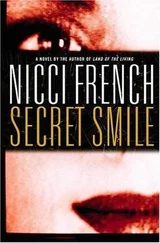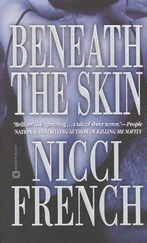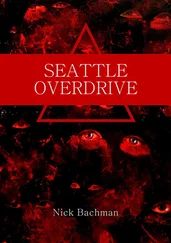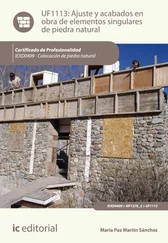‘What is it? Have they found something?’
‘Yes,’ he said. ‘They have.’
From that moment everything changed. Suddenly I was shut on the outside looking in, not able to see. I asked Kamsky what had happened, what had been found, but he shook his head. He was an impersonal official now, estranged from me. He said it was part of an ongoing investigation and he couldn’t reveal any details. I said I didn’t understand. Were they going to arrest somebody? We were still standing out there in the garden, by my doomed vegetable patch. Kamsky started to speak, then hesitated, then spoke again. ‘I think it’s likely that charges are imminent,’ he said.
‘Who?’ I said. ‘Who’s being charged?’
‘We’ll see,’ he said, then nodded. ‘Come with me.’
Then things happened quickly. A process was under way and we, the residents of seventy-two Maitland Road, were swept along helplessly in it. The house wasn’t ours any more. It had changed even in the time that Kamsky and I had been in the garden. It looked like the site of a sinister biological accident. People were wandering around in white coats with their shoes wrapped in white nylon bags. The rooms on the ground floor were being sealed off with tape.
‘We’d like you all to come into the station with us,’ said Kamsky.
‘Can I fetch something from my room?’ I asked.
‘I’m sorry,’ said Kamsky. ‘You can’t. This is a crime scene now.’
‘What do you mean, a crime scene?’ I said. ‘What crime?’
Dario was being led down the stairs by the two officers I’d seen him with before.
‘Astrid,’ he said. ‘They’re taking us in.’
‘Quiet,’ said Kamsky. ‘I don’t want you to confer.’
So Dario gestured at me helplessly, almost comically, as he was led past me and out into the street. Two men came in carrying arc-lights on metal stands. At the same time I was thinking urgently. In my pockets I had the bundle of money. Was I a suspect? Would I be searched at the police station? Would I have to surrender all the contents of my pockets? Probably not, unless I was the one who was going to be charged. In which case it would look very bad indeed. If there was any chance of it being found, it would be prudent to tell them in advance. But I couldn’t think of a way of saying it that wouldn’t sound strange. ‘Detective Chief Inspector Kamsky, I think I ought to mention that I’ve got twenty thousand pounds in cash in my pocket. It’s not at all relevant to the case, but I thought you might want to know.’
I felt a touch on my arm and started. It was Kamsky. ‘We’re leaving now, if that’s all right,’ he said.
‘Can I take my bike, at least?’ I asked. ‘It belongs to Campbell – and it’s my livelihood.’
He shrugged. ‘Go on, then. A police car will follow you.’
As we were led out, I saw that the street now seemed to be jammed with police vehicles, the brightly coloured cars and vans and then more unmarked vans. Lines of tape sealed off a whole section of Maitland Road in front of our house. Behind the tape a crowd of people was staring. Did they think I was being arrested? That I was a suspect? Was I a suspect? It suddenly occurred to me that I ought to compose my face into a suitable expression. I mustn’t smile. That would look insensitive. I mustn’t cover my face, seem angry or evasive. I needed to look businesslike, every inch the woman who was helping the police with their inquiries. Except that everyone knows that ‘helping police with their inquiries’ is the euphemism for being the main suspect who hasn’t yet been charged. I had to look self-consciously unselfconscious, like the person who really was helping the police with their inquiries. Which is what I was, wasn’t I?
People from the crowd shouted my name as I walked out. I looked around reflexively. They weren’t neighbours or friends. This was London, after all, where you don’t know your neighbours. These were the journalists and photographers who already knew me. What did they think, seeing me with an officer at my elbow? The headline that accompanied the photograph would be the thing that everyone remembered, whatever else happened.
My return to the police station, to the interview room, the plastic moulded chairs, the linoleum, the pimpled wallpaper, was like a recurring dream, coming back to the same place, telling the same story, filling in the gaps in response to the same questions. Except this time I knew that Mick and Davy and Mel and Pippa and Owen and Miles and Dario were sitting in other interview rooms or on benches waiting their turn. For a few minutes I was left alone in the room and I could almost feel their proximity. I felt as if it wasn’t just that we were separating, leaving the house and each other. It was as if one of those wrecking balls had swung into the house and smashed away a whole wall. I thought of half-demolished buildings, where you could see the wallpaper exposed to the rain, and all the innards, the wires and beams and joists, like bones and muscles and tendons spilling out of a wound.
The process of giving the statement was long and it was boring, but I noticed gradually that it lacked the hostility of my earlier interviews. A junior detective of about my own age took the statement, and he was so ill-briefed that I had to prompt some of his questions. I knew my part so well now. I was numbed by it, but he was clearly excited to be involved. When there was really nothing more to be said, he left me alone once more. After a few minutes the interview-room door opened and Kamsky came in. I saw a new brightness in his eyes as he sat down opposite me. ‘You all right?’ he asked.
‘Just knackered,’ I said.
‘You can leave now,’ he said. ‘I’m afraid you can’t go back to the house. Have you got somewhere you can stay?’
‘Yes – my friend Saul, remember? But – ’
‘You’ll need to keep us informed of your whereabouts,’ he said.
‘Aren’t you done?’
‘Not entirely,’ he said, and then his face broke into a smile. ‘We have found evidence – blood, hair, trophies taken from the dead women. Perhaps I shouldn’t be telling you this, but we’re about to call a press conference at which we’ll announce that we’re charging Miles Rowland Thornton with the murders of Margaret Farrell, Ingrid de Soto and Leah Peterson.’
At which point I thought two things more or less simultaneously. I thought: No, oh, no, please, no. And I thought: He never told me he was called Rowland. I didn’t know I was crying until Kamsky pressed a tissue into my hand. Because, in spite of everything, Miles was my friend.
‘Tell me about it,’ I said at last. ‘Tell me everything.’
As Kamsky kept saying, evidence was evidence. Motives might be incomprehensible, explanations hard to find, but the fact was that they had evidence that tied Miles to the deaths of Margaret Farrell, Ingrid de Soto and Leah Peterson.
‘No,’ I said. ‘How? All three?’
‘All three.’
‘What?’
‘A murder weapon for one. And bodily samples for another,’ he said, with grotesque delicacy. ‘Tissue and hair from Margaret Farrell, if you want me to be precise. Don’t you see? It’s perfect.’ He was actually smiling. ‘It solves the problem of Margaret Farrell’s body. Her body was kept in Mr Thornton’s room. She may have been killed there. What is certain is that her body was kept there, then dumped later at the site where it was found. What’s more, there were also objects hidden in his room. Trophies, we assume.’
‘Trophies? Like what?’
‘You’ll hear soon enough.’
‘I just don’t get it. Why? I mean, I can understand Leah. Not understand-understand, but grasp it. He knew her. He was her lover. But the others. Peggy, for God’s sake, he hardly knew her. She was just a harmless woman who lived down the road.’
Читать дальше
